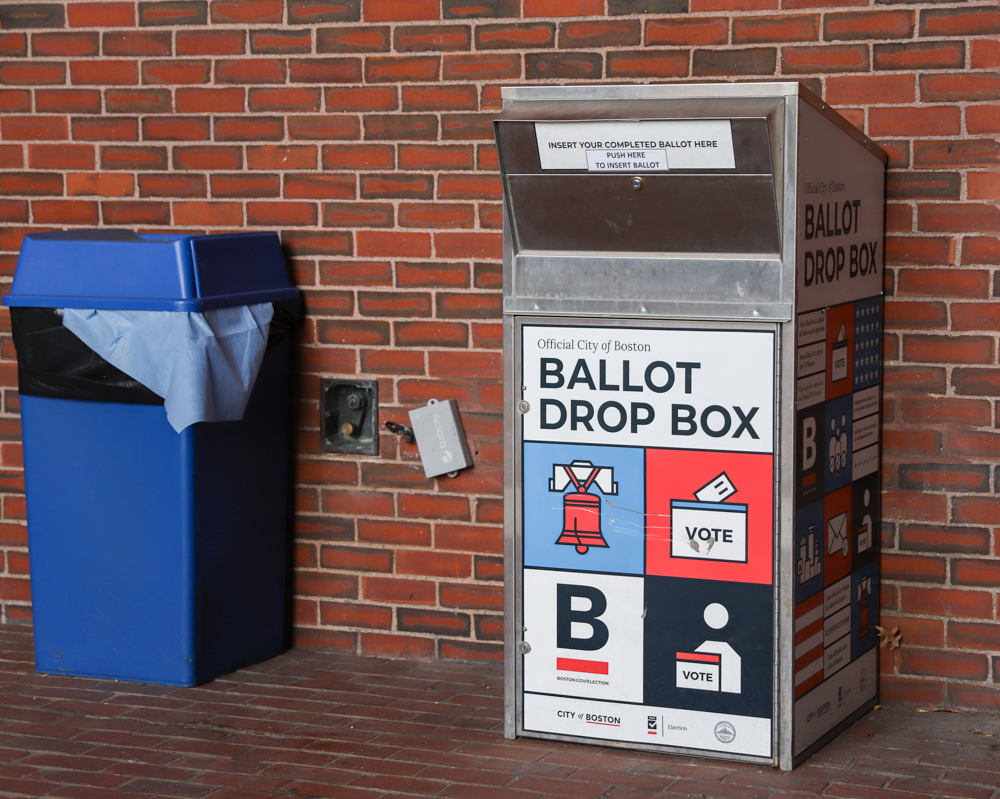Massachusetts voters approved three ballot questions and rejected two others on Nov. 6, with the approved measures set to impact government transparency, education requirements and rideshare worker rights. Meanwhile, the rejected questions were on the legalization of psychedelics and the gradual increase of wages for tipped restaurant workers.

Question 1: Passed
Question 1 allows the state auditor to audit the state legislature, including all of its departments.
Led by State Auditor Diana DiZoglio, the ballot was passed with 71% of voters supporting it and 28% opposing it, according to results from the Associated Press News.
With the passage of this ballot measure, DiZoglio and other state auditors have the ability to scrutinize legislative spending, operations and performance. This passage is expected to enhance transparency and accountability within the legislative branch.
Question 2: Passed
Question 2 proposed removing the Massachusetts Comprehensive Assessment System as a high school graduation requirement.
The ballot was passed with 59% “yes” votes and 41% “no” votes, according to AP News.
School districts in Massachusetts can now set their own graduation requirements, which will eliminate the requirement for students to meet specific scores on the MCAS to graduate. While the MCAS will still be used as a diagnostic tool, students will now only need to fulfill the graduation criteria established by their individual school districts.
Question 3: Passed
Question 3 aimed to allow unionization and collective bargaining among transportation network drivers, such as Lyft and Uber.
The ballot measure passed with 54% voting “yes” and 46% voting “no,” according to AP News.
With the passage of Question 3, drivers for rideshare companies such as Uber and Lyft now have the right to join a union and aim to secure better working conditions through collective bargaining.
This makes Massachusetts the first state to allow unionization for app-based transportation drivers.
The measure also establishes a hearing process through the Massachusetts Employment Relations Board to handle unfair labor practice complaints against transportation companies, which is expected to ensure oversight and accountability.
Question 4: Rejected
Question 4 proposed legalizing and regulating certain psychedelic substances for adults 21 and older, allowing them to grow, possess and use psychedelic substances for specified circumstances.
Question 4 was rejected with 57% voting “no” and 43% voting “yes,” according to AP News.
This rejection means psychedelic substances remain illegal in Massachusetts and continue to be classified as Schedule I controlled substances.
If passed, the law would have established a five-member Natural Psychedelic Substances Commission to oversee licensing, safety, training and record-keeping for the use and distribution of natural psychedelics.
Question 5: Rejected
Question 5 aimed to gradually increase the minimum wage for tipped workers over a five-year period to match the state minimum wage at $15 per hour.
Question 5 was not passed with 64% voting “no” and 35% voting “yes,” according to AP News.
The measure faced strong opposition from restaurants, which argued that raising the minimum wage for tipped employees would strain businesses financially and potentially lead to closures.
With the rejection of this ballot measure, tipped workers will continue to earn a base wage of $6.75 per hour, excluding tips, and would make no change in tip pooling.






















































































































